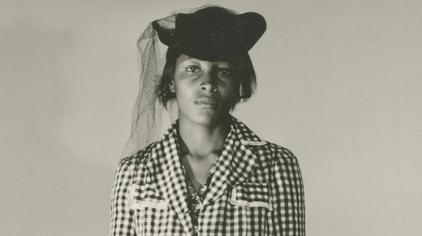“Black women are at the center of that struggle”: Recy Taylor’s Significant Story
Author Danielle McGuire details the significance of Recy Taylor’s story in the fight for civil rights.

While accepting the Cecil B. Demille lifetime achievement award at the Golden Globes a week ago, Oprah Winfrey honored a couple of women who led with strength and conviction during the Civil Rights movement.
One of those names is familiar to us, especially here in Detroit; Rosa Parks.
The other name was less familiar; Recy Taylor.
Taylor was raped in the mid 1940s by a group of white men in the Jim Crow south. Against all odds, Taylor pursued legal action against her rapists in Alabama. There was no conviction of the half a dozen men who raped her, but Taylor remained steadfast and outspoken about her ordeal.
A few years ago the state legislature in Alabama officially apologized to Taylor for her mistreatment by the legal system. The joint resolution detailed the account and stated:
BE IT RESOLVED BY THE LEGISLATURE OF ALABAMA, BOTH HOUSES THEREOF CONCURRING, That we acknowledge the lack of prosecution for crimes committed against Recy Taylor by the government of the State of Alabama, that we declare such failure to act was, and is, morally abhorrent and repugnant, and that we do hereby express profound regret for the role played by the government of the State of Alabama in failing to prosecute the crimes.
BE IT FURTHER RESOLVED, That we express our deepest sympathies and solemn regrets to Recy Taylor and her family and friends.
The official proclamation came after a book was published in 2011 that detailed the horrors of Recy Taylor’s ordeal. That book was called At the Dark End of the Street: Black Women, Rape, and Resistance—a New History of the Civil Rights Movement from Rosa Parks to the Rise of Black Power. The book was written by Danielle Mcaguire, author and faculty with Wayne State University.
McGuire tells Detroit Today host Stephen Henderson she was shocked to hear Oprah give Recy Taylor a global spotlight from the Golden Globes stage.
“I couldn’t think of a better tribute to [Taylor] and her efforts to attain justice,” says McGuire. “For Oprah Winfrey to use her platform in that moment… was really important. It reminded everyone there that black women are at the center of [the #MeToo movement] struggle… and have been at the center for centuries.”
Recy Taylor died late in 2017 at the age of 97.
To hear Recy’s story as told by McGuire on Detroit Today, click on the audio player above.
